So many readers ask me “What Is A Keto Diet? How do you start? How strict do you have to be?
This is the complete beginner’s guide.
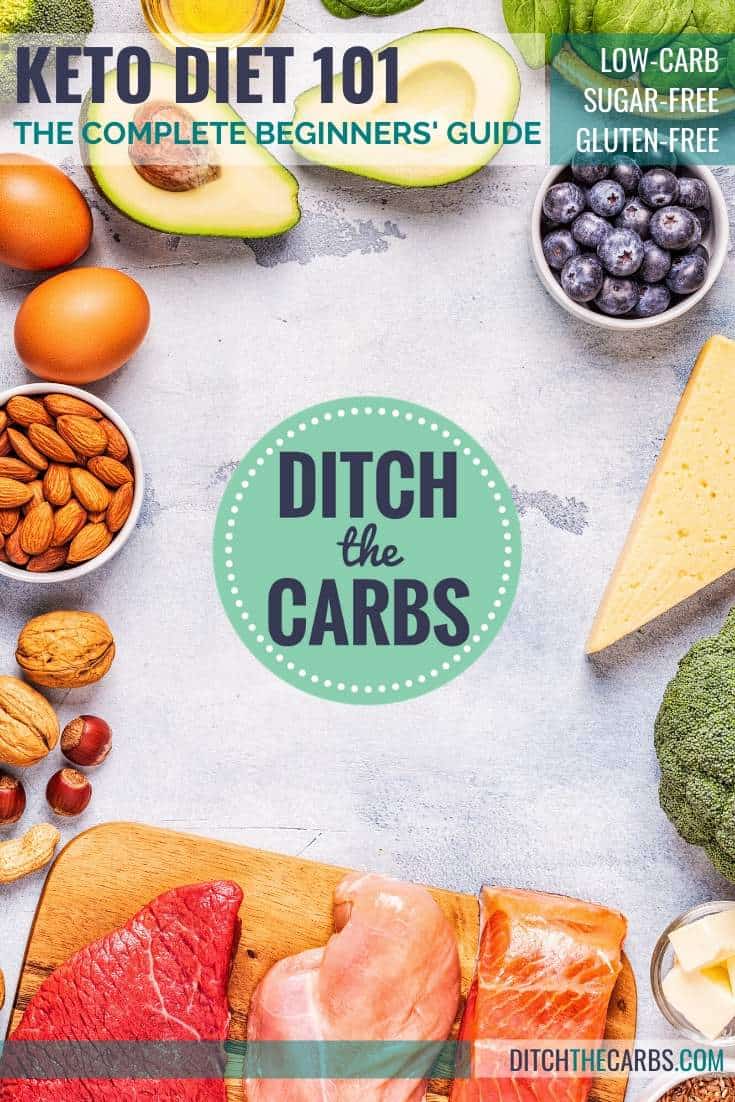
What Is A Keto Diet is an article was written by Libby Jenkinson, MPS and reviewed by Raphi Sirtoli, MSc.
Low-carb and keto diet 101
So what exactly is the ketogenic diet?
Are you ready to create the ultimate 12-month blueprint for reaching your health & weight loss goals this coming year?

Our free on-demand video training will walk you through how to make 2024 THE year you set health goals…and keep them.
You may hear that it’s simply a high-fat diet and an extremely low-carb diet. You may have heard you drink bulletproof coffee and eat keto protein bars.
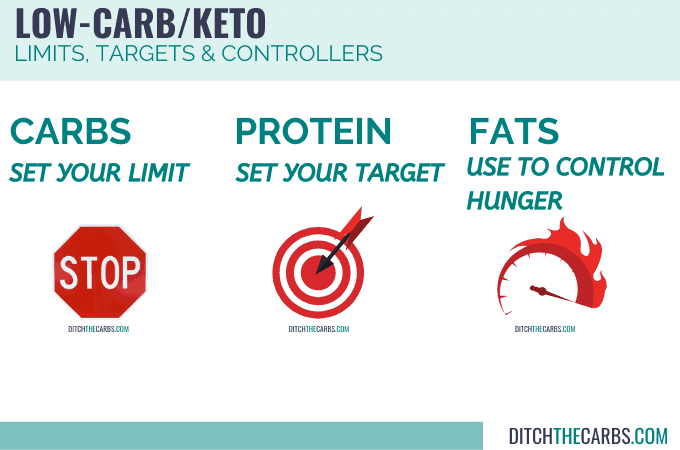
[convertkit form=2151210]
The ketogenic, or keto diet can be described as a very low-carb and high-fat diet (LCHF).
You may also find that the keto diet is said to have similarities to other low-carb diets such as Atkins, but the keto diet is formulated quite differently.
With the keto diet, you will be reducing your carbohydrates dramatically and replacing them with healthy fats.
Generally, a keto diet is considered to be:
- less than 20g net carbohydrates per day
- high in healthy fats
- moderate to high protein (1.5 – 2.5 g/kg of lean body mass). In imperial units that’s 0.7 – 1.4 g/lbs of lean body mass)
Read more: The Ultimate Guide To Healthy Fats
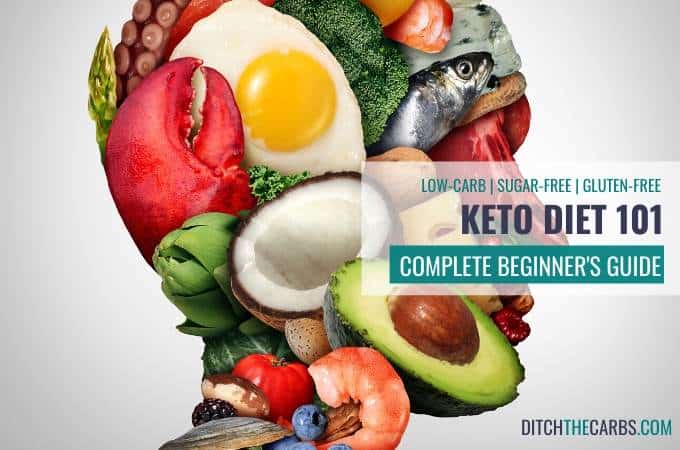
By lowering your carbs to this level, it will put your body into a metabolic state called nutritional ketosis. This state of nutritional ketosis is what allows your body to become extremely efficient at burning fat.
Ketogenic diets are incredibly successful at producing stable blood sugar levels and therefore reducing insulin demand from the body.
How does the keto diet work?

When we eat digestible carbohydrates such as sugar and starch, they are converted into sugars in our bodies.
To keep our blood sugars from rising too high, insulin is required – whether it is produced in our body, or injected by those who cannot produce their own.
Insulin is our fat-storing hormone, acts as a fat-burning switch and helps to regulate our appetite.
Insulin is like the foreman overseeing and signing off on the blood sugar-regulating work carried out by the hormone glucagon, your liver, your fat cells and others.
Eating low carb foods can help stabilize blood sugars and reduce cravings. Fat burning is encouraged.
You will become a fat burner, not a sugar burner.
In addition, chronic high levels of insulin which will eventually lead to insulin resistance and inflammation.
Why high fat?

By enjoying plenty of healthy fats, you will keep your hunger under control. Healthy fats keep you fuller for longer and supply all the fat-soluble vitamins A, D, E and K that are lacking in so many low-fat diets.
The one factor that is never addressed with calorie counting or low-fat diets, is appetite control. By increasing (but not over-eating) healthy fats, you are satiated for longer.
Low-fat and calorie-controlled diets are not sustainable. Being told to eat less and move more just makes you hungry and irritable.
What do you eat (and avoid)
Ketogenic diets ENJOY the following foods:
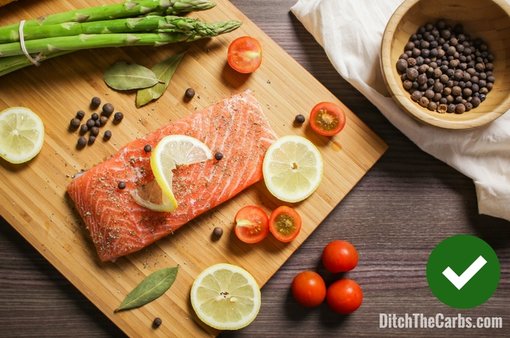
- Cheese
- Nuts and seeds (limited quantities)
- Eggs
- Low-starch veggies
- Healthy fats and oils
- Fish and shellfish
- Meats
You may be wondering is this keto? It depends on quantity and quality. You may also wish to focus on clean keto (quality) or dirty keto (quantity). You may also be wondering if grass-fed meat really better or healthier?
First focus on stopping the worst areas of sugar and processed foods, then you can focus on improving quality and nutrition.
Ketogenic diets AVOID the following foods:
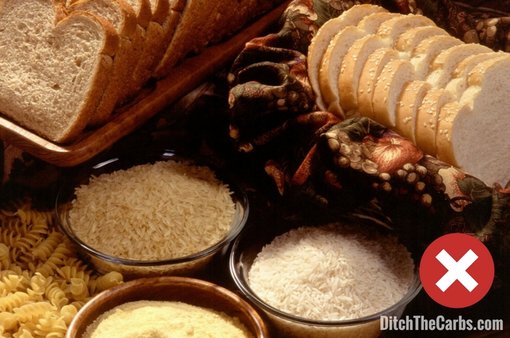
- Grains and starchy foods
- Diet foods/fake foods
- Fruits
- Root vegetables
- Beans
- Sugar, sugary foods and drinks
What are the benefits of a keto diet?
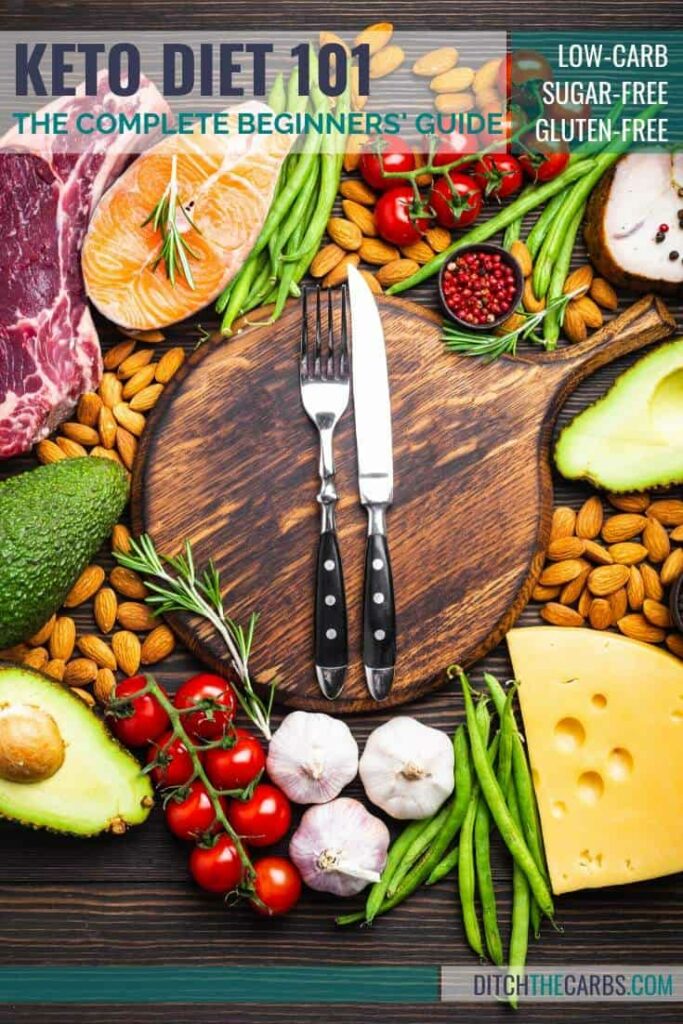
[convertkit form=2151210]
So what is a keto diet and why do so many people have incredible success with keto?
There are many reasons to follow the keto diet, including, but not limited to:
- Incredible fast and sustainable weight loss
- Stable blood sugars for all forms of diabetes – pre-diabetes, Type 1 and Type 2
- Neurological disorders such as epilepsy and Alzheimer’s
- Appetite control
- Reduced cardiovascular risk factors
- Reduced risk of certain cancers
- Reduced inflammation caused by a high-carb diet
Living keto or low-carb, helps reduce inflammation and reduce the risk factors of the big 4 – cancer, heart disease, obesity and type 2 diabetes.
Side effects of a keto diet
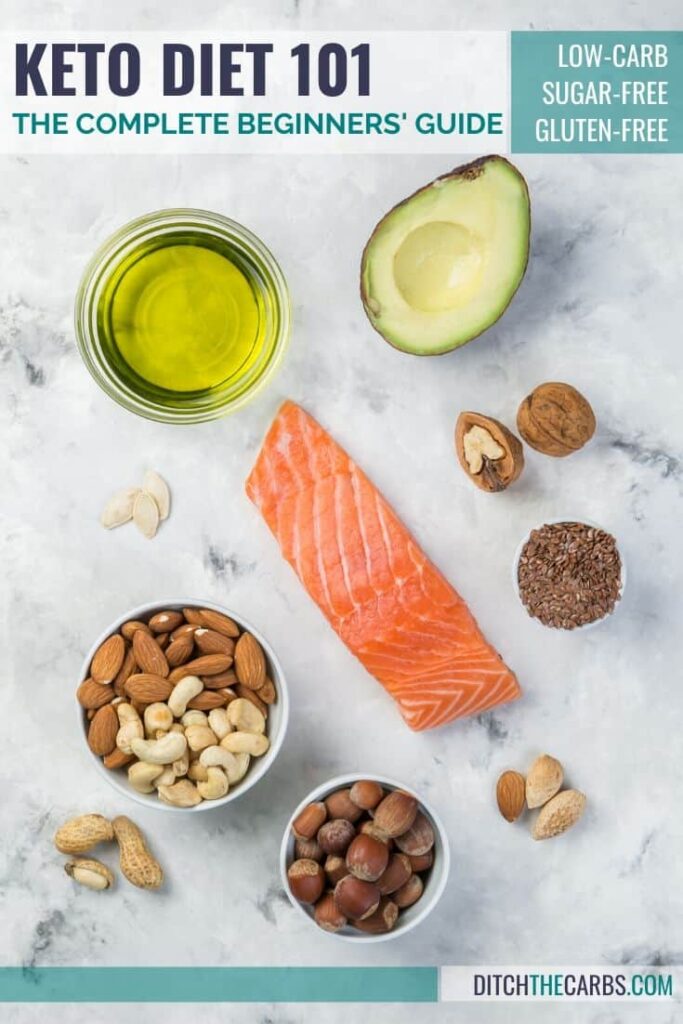
It is, of course, important to speak to your doctor about any major diet or lifestyle changes, especially if you have any underlying health issues.
It is important to remember that while the ketogenic diet is safe and works well for most people, for some, there may be side effects that occur while your body adapts to this new eating style.
These transient keto side effects can present themselves as what some call “keto flu.”
Read more: How to avoid the keto flu

Keto flu sufferers usually report an initial sluggishness, lack of focus, headache, digestive distress and other complaints.
These symptoms can often be minimised by slowly transitioning your way into the keto diet. This can be done by starting with a typical low-carb diet as opposed to jumping straight into keto.
You also need to ensure to remain hydrated and keeping your mineral levels (potassium, sodium and magnesium) at a normal balance.
Always drink to thirst and increase your salt intake upwards of 4-5 g in a day, as well as supplement with potassium and magnesium if need be.
A fantastic way to keep your fluids up and maintain your electrolytes is to drink bone broth.
Not drinking enough is one of the top mistakes people make when starting keto.
FREE macro calculator
How many carbs you consume each day will be dictated by your health goals and carbohydrate tolerance.
Generally, a low-carb diet is considered to be:
- <100g/day = moderate low-carb
- <50g/day = low-carb
- <20g/day = keto
Many readers like to begin by simply reducing their carbs to a level that is sustainable and weight loss still occurs.
To work out your carbs, protein, and fat limits to enjoy each day, use the FREE macro calculator.
What is a keto diet – Conclusion

A ketogenic diet is a great choice for many reasons and has been shown to have numerous health benefits.
Like any eating plan or lifestyle change, you have to stick with it to see results. But for me, I have worked with millions of readers, all of whom tell me this is the easiest and most sustainable way of eating for long term weight loss and improved health.
More articles you may like:
Get our FREE guide to finally fix your metabolism!
Losing weight & getting healthy is never easy, but lately you might feel like it’s suddenly become impossible.
Our Flip the Switch guide will help you clearly understand what’s been going on, as well as exactly what you can do to get your metabolism working again so that you can look and feel your best—it’s easier and more simple than you think!

















Hi, I am following keto and I used the keto calculator. I’m am finding it hard to reach my fat macros. Whereas with protein I always go over.
Suggestions?
Great questions Philippa. The calculator shows a starting point then you can adjust if your weight loss stops or you’re not reaching your health goals. First, let’s bust some myths. Fat is a maximum and we should not try to “reach” it. Eat enough healthy fats to stay full but not to excess and don’t drink bulletproof coffees or eat fat bombs, for example, to bump up your fat intake. The fat we want to burn is dietary fat, yes, but also our body fat, our “inner pantry”. Protein is a minimum to stop being in protein deficiency. Protein is a target and everyone’s target range will differ depending on their level of activity, stress, healing, age etc. Many who follow the Carnivore diet, for example, eat enormous amounts of protein and make incredible progress. quality protein is nutrient-dense and incredibly satiating. Always prioritise protein in a meal. You may wish to read What is the keto food pyramid. You may also wish to join us inside Ditch The Carbs PRO as we are doing a tracking challenge in 2 weeks. It’s our most successful week.